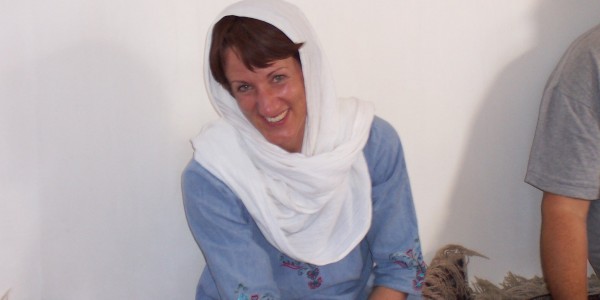Building bridges
Growing up in Montreal, Quebec, a 12-year-old Maureen Mayhew was enraptured while reading stories about the legendary Florence Nightingale.
“When I was little, I read a book about her and thought, ‘That’s so cool, I could do that,’” Maureen tells me. “She helped people affected by war, people in need and she was appreciated for that.”
So when it came time to decide between a path in physics or medicine, Maureen chose people over protons (“I can’t relate to machines like I can to people”). She became a physician who helped marginalized people around the globe in Afghanistan, across northern Canada and in Vancouver’s Downtown Eastside where she began her relationship with VCH. Since 2007, Maureen has worked at VCH’s Bridge Clinic as a physician and medical coordinator, helping refugees who have come to Canada to escape persecution in their home countries.
“I like helping people who see and experience in a different way, a practice I call cross-cultural care,” she explains. “I like to see how people from different cultures understand and relate to health messages. It’s a challenge to modify a message to make it more and more effective. To me, challenges are something that make medicine more interesting and creative.”
New challenges
The next challenge that Maureen has thrown at herself will be as a public health and clinical physician at Tuberculosis Control at the BC Centre for Disease Control (BCCDC) where she will be working from a patient-focused level all the way to a policy and strategic level.
“It’s a very positive opportunity because I get to use my experience and knowledge in primary care, clinical care, public health, research, statistics and teaching,” she says.
While excited about a new experience at the BCCDC, the physician-of-26-years says she’ll miss the people and team at the Bridges Clinic. Working with refugees at the clinic, Maureen found true empathy and common ground with her patients.
“Over the years, I have learned that we’re all very similar,” she says. “Some of us are lucky and have been nurtured in very stable situations. But anyone, given a destabilized environment, could become a refugee. If we allow ourselves, we can see the similarities – we all have those basic needs. Refugees are survivors and they have a resilience that the average person in Vancouver has never had to develop.”

